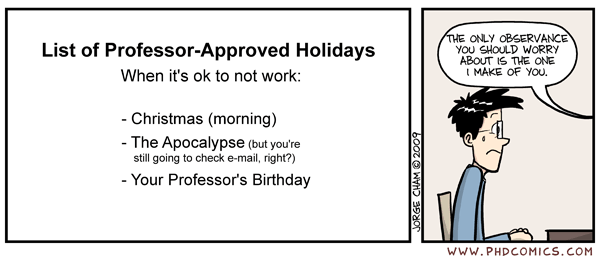Call for proposals for a special issue of
The International Journal of Qualitative Studies in Education
Youth Resistance Revisited: New theories of youth negotiations of educational injustices
Special issue co-editors: Eve Tuck and K. Wayne Yang
1000 word proposals due March 1, 2010
Objective of the special issue
Paul Willis’ assertion of working class lads’ resistance to education and especially to
uneven educational practices sent ripples through the fields of education and sociology at
the publication of his book Learning to Labour in 1977. Now, more than thirty years
later, resistance continues to be a widely used lens through which to see and understand
the social contexts of communities and schools, and youth experiences in schooling, and
in education beyond schooling.
This peer-reviewed special issue in the International Journal of Qualitative Studies in
Education (QSE) will explore the possibilities and limitations of theories of youth
resistance in educational research, and present new and expanded theories of youth
responses to injustices in schooling. This special issue will challenge readers to think
about youth negotiations of educational injustices in ways that defy the ubiquitous
dichotomy of reproduction or resistance. Instead, authors will impart analyses that
characterize youth resistance as something beyond practices that are obliged to lead to
structural transformation and/or to educational mobility, although some forms of
resistance may in fact do so. Drawing from a range of discourses—including, but not
limited to, critical theory, political economy, decolonizing theory, queer theory, critical
race theory, dis/ability studies, and educational discourses that borrow from criminal
justice, health, and sociology—the articles will present research findings that complicate,
extend, and sometimes explode current conceptualizations of youth resistance.
The objective of this special issue is to build upon existing theories of youth resistance in
order to improve educational research and educational practice and policy. Featuring
qualitative studies in education that employ a diversity of methods including, but not
limited to, ethnography, participatory action research, group and individual interview,
and participatory survey, the articles will solder empirical research to theory, providing
on-the-ground examples of new or reclaimed theories of youth resistance in action. Each
article will discuss a new or expanded theory of youth negotiations of educational
injustice, with implications for teaching, learning, educational policy, and qualitative
research. The special issue will be multi- and interdisciplinary, relying upon a variety of
inquiry methods and epistemological frames.
Call for proposals
We are seeking proposals (1000 words, plus references) for this special issue on “youth
resistance revisited” for manuscripts that, acknowledging the educational,
methodological, and theoretical importance of (youth) resistance, will use the findings of
original research to deepen, extend, and expand the complexity of the concept. The
proposed manuscripts should fuse theory and practice of qualitative research. Proposals
should articulate a new or reclaimed framing of youth resistance, and present a
description of the study/ies, data, and theories that inform this framing. Authors should
detail implications for teaching, learning, educational policy, and/or qualitative research.
Priority will be given to proposals that offer compelling, innovative, or often-overlooked
ways of understanding the contexts and conditions within which youth negotiate, resist,
and sometimes reject schooling.
Final manuscripts will be 5,000 or 8,000 words, plus references.
Additional factors in our decisions to accept proposals will be geographical,
methodological, and epistemological diversity across the special issue as a whole.
Also in your proposal, indicate if you would be willing to review a manuscript submitted
for this special issue.
Send your proposal to Eve Tuck tucke@newpaltz.edu and K. Wayne Yang
kwayne@ucsd.edu by March 1, 2010. You may also contact us with any questions.
Proposal and manuscript guidelines from QSE
Please write clearly and concisely, clearly stating and defining objectives and terms.
Arguments should be substantiated with well-reasoned supporting evidence.
For all manuscripts, gender-, race- and creed-inclusive language is mandatory. Sexist or
racist terms should not be used.
Manuscripts should conform to the style set forth in the Publications Manual of the
American Psychological Association (5th ed.) and be well edited.
An academic biography for each author of no more than 50 words should be included
with your proposal. Authors should include their full names, affiliations, postal addresses,
telephone numbers and e-mail addresses. Biographical notes should be contained on a
separate sheet and be located at the beginning of the manuscript.
Submission timeline
March 1, 2010 1000-word proposals due
April 1, 2010 Notification of acceptance
September 1, 2010 Manuscripts due
January 1, 2011 Reviews of manuscripts returned- notification of final acceptance
to issue
March 15, 2011 Final manuscripts due
September, 2011 Tentative Publication Date
Special issue co-editors contact information
Eve Tuck
Assistant Professor of Educational Foundations
Department of Educational Studies, School of Education
State University of New York at New Paltz
South Classroom Building, Room 111
800 Hawk Drive
New Paltz, NY 12561
845.257.2958
tucke@newpaltz.edu
K. Wayne Yang
Assistant Professor of Ethnic Studies
Affiliated Professor, Urban Studies & Planning Program
University of California San Diego
9500 Gilman Dr. MC 0522
La Jolla, CA 92093-0522
858.822.2824
kwayne@ucsd.edu

